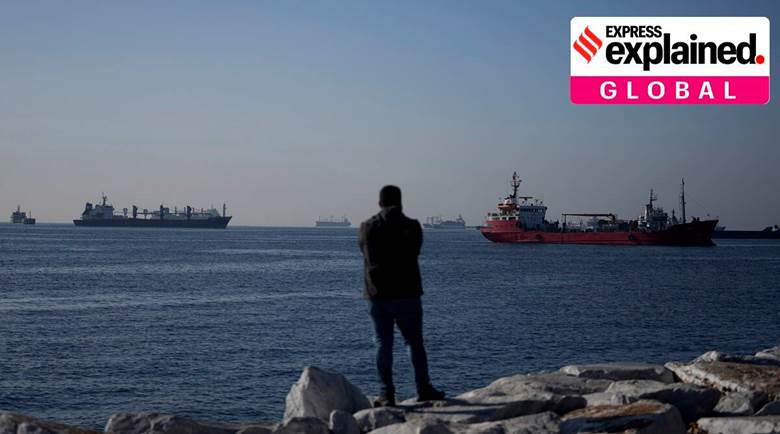RUSSIAN SUSPENSION OF GRAIN DEAL

Copyright infringement not intended
Context: Russia has suspended its part of the deal allowing Ukraine to ship grain from its Black Sea ports safely amid a monthslong war, and it appears that the remaining partners are now left to take their chances
Details:
Russia and Ukraine signed separate agreements with Turkey and the U.N., clearing the way for exporting millions of tons of desperately needed Ukrainian grain — as well as Russian grain and fertilizer — ending a wartime standoff that had threatened food security around the globe.
Why was the grain export deal signed?
- Ukraine is one of the world’s largest exporters of wheat, corn and sunflower oil, but Russia’s invasion of the country and naval blockade of its ports have halted shipments.
- Some grain is being transported through Europe by rail, road and river, but the prices of vital commodities like wheat and barley have soared during the nearly five-month war.
- Ukrainian and Russian military delegations reached a tentative agreement on a U.N. plan that would also allow Russia to export its grain and fertilizers.
What is the grain export deal?
- The deal makes provisions for the safe passage of ships.
- It foresees the establishment of a control center in Istanbul, to be staffed by U.N., Turkish, Russian and Ukrainian officials, to run and coordinate the process.
- Ships would undergo inspections to ensure they are not carrying weapons.
- No Russian ship would escort vessels and that there would be no Russian representative present at Ukrainian ports.
- Ukraine was expected to export 22 million tons of grain and other agricultural products that have been stuck in Black Sea ports due to the war.
What has the deal achieved?
- The grain initiative has been a rare example of cooperation between Ukraine and Russia since Russia’s invasion in February.
- Brokered by the United Nations and Turkey, it has allowed more than 9 million tons of grain in 397 ships to safely leave Ukrainian ports.
- The grain agreement has brought down global food prices by about 15% from their peak in March, according to the U.N., and the U.N. secretary-general had urged Russia and Ukraine to renew the deal when it expires Nov. 19.
What happens now?
- Russia has requested a meeting of the U.N. Security Council to discuss the issue while offering to supply up to 500,000 tons of grain “to the poorest countries free of charge in the next four months.”
- While sanctions on Russia don’t affect its grain exports and a parallel wartime deal was meant to clear the way for Moscow’s food and fertilizer shipments, some businesses have been wary.
- Ukraine, the U.S. and its allies again accused Russia of playing “hunger games.”
- Developing nations will have to find new suppliers and pay more from countries such as the U.S., Argentina and Australia, where dry conditions or rain are posing problems.
- But high prices mean producers will plant more, and those not typically big wheat exporters, like Brazil and India, have shipped more




1.png)
